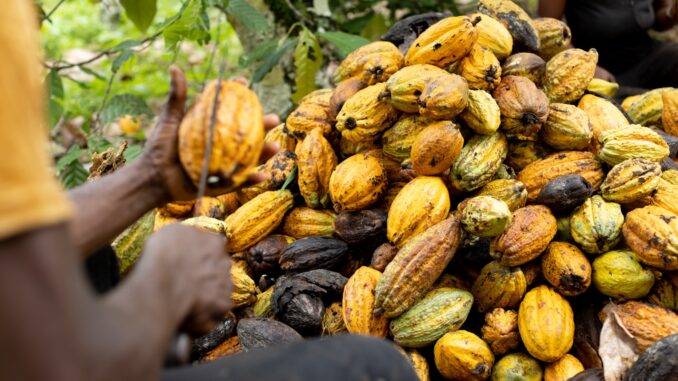
Ghana’s cocoa regulator, COCOBOD, is planning to secure up to $1.5 billion in loans by September to finance cocoa purchases for the 2024/25 season and compensate for the current season’s low production levels. This move comes as Ghana, the world’s second-largest cocoa producer after Ivory Coast, typically obtains an annual syndicated loan to fund bean acquisitions from farmers at the start of each season in September.
However, this year’s initial $800 million loan has faced delays due to lower-than-expected cocoa output. COCOBOD has already withdrawn $600 million and canceled the remaining portion, as the season’s production is projected to be nearly 40% below forecast, rendering the full loan amount unguaranteed.
Sources familiar with the arrangement indicate that COCOBOD has sent a request for proposals to banks, seeking to borrow up to $1.5 billion for the next season. The banks will determine the optimal loan amount. At least one international bank has visited Ghana to inspect cocoa farms before deciding on the offer, while another is scheduled to visit next month.
The sources, who requested anonymity due to media restrictions, expect production to recover to 810,000 metric tons in the 2024/25 season. Ghana’s cocoa production has been affected by adverse weather, disease outbreaks like the swollen shoot virus that wiped out around 590,000 hectares of farmland between 2018 and 2024, and cocoa smuggling activities exacerbated by rising global prices.
Despite the challenges, one source expressed confidence in meeting the 810,000-ton target next season, citing expected weather improvements and output boosts from rehabilitated cocoa farms. However, according to central bank data released this week, Ghana’s cocoa export revenue fell nearly 50% year-on-year in the first four months of the year.
